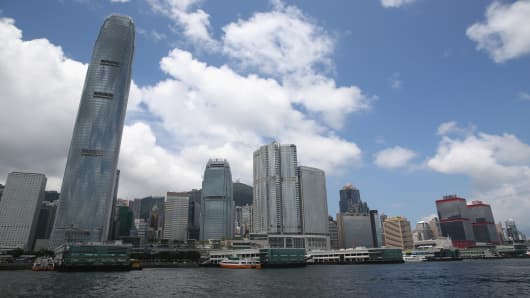As investors continue to fret over the tapering off of liquidity in the U.S. and the impact on global markets, a World Bank economist tells CNBC the move poses a particular risk to Asian investors as he expects interest rates to start rising again.
Andrew Burns, a lead economist with the Development Prospects Group at the World Bank, said a less supportive global economic environment will inevitably lead to an end to the "unsustainable" world of lower interest rates, particularly in Asia.
"As liquidity becomes less abundant... there's going to be a less supportive global environment and that's going to show up in higher interest rates," said Burns.
"Loans that have been undertaken at higher interest rates won't be viable... particularly in countries in East Asia and [Asia] Pacific, specifically, where there's been a very significant increase in credit over the last few years," he added.
(Read More: Here's How QE Tapering Could Hurt Asia)
Financial markets around the world have been awash with liquidity in recent years, mainly as a result of the U.S. central bank's expansive bond-buying program. More recently the Bank of Japan followed suit, announcing plans to inject $1.4 trillion into its own flagging economy, boosting investor sentiment worldwide.
However, speculation over the U.S. Federal Reserve starting to unwind its stimulus program, has increased in recent months, prompting concerns over the negative impact for investors worldwide. Meanwhile a lack of action from the Bank of Japan this week has raised further worries about the withdrawal of central bank support.
(Read More: Is the Fed Prepping Markets for the End of QE?)





